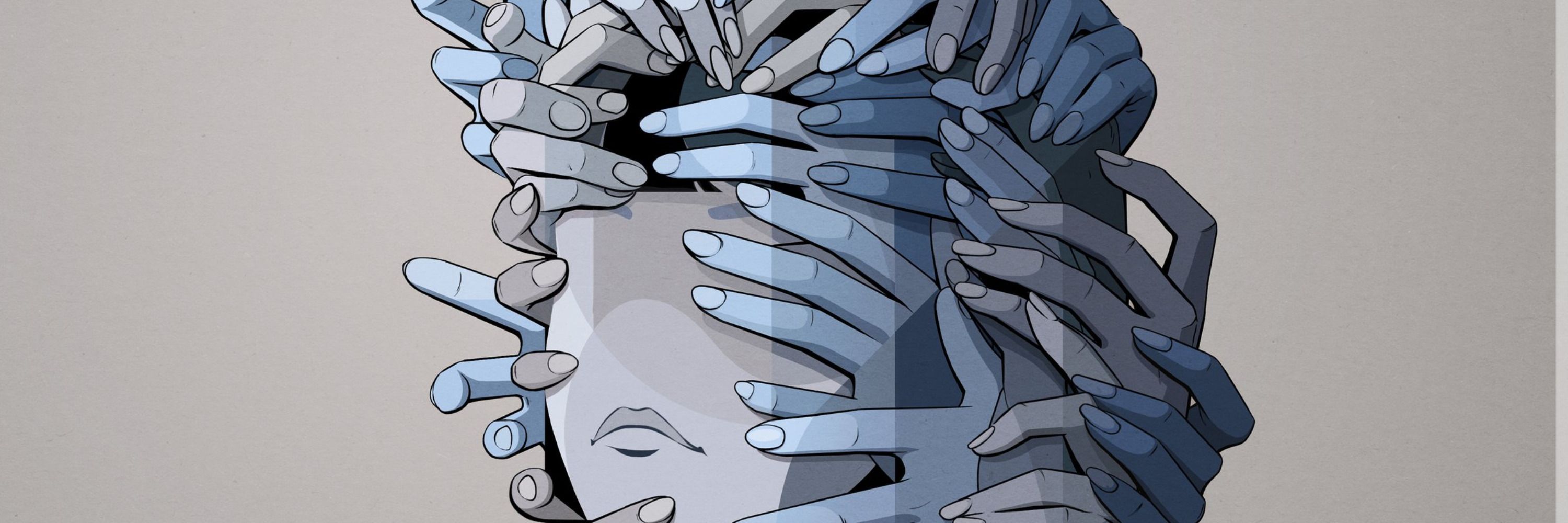
Eric Hehman
@erichehman.bsky.social
prejudice, person perception at McGill | https://prejudicemap.org
Pinned
Eric Hehman
@erichehman.bsky.social
· Jul 7
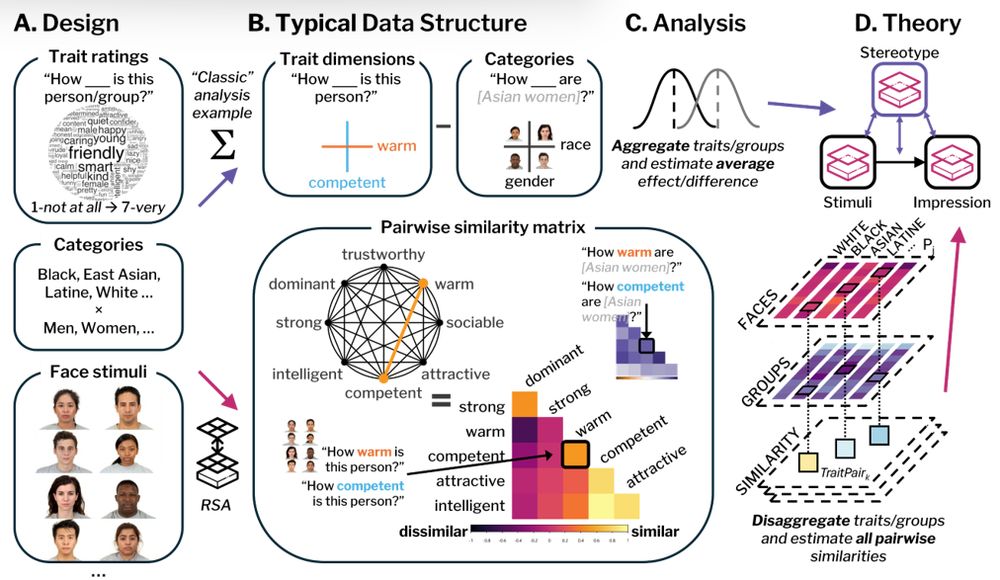
We had a new tutorial on representational similarity analysis come out recently. Led by @xallysie.bsky.social with Ruoying Zheng and @chujunlin.bsky.social
This technique lets you compare patterns across diff types of measures (eg correlate correlation matrices), super flexible
This technique lets you compare patterns across diff types of measures (eg correlate correlation matrices), super flexible
Reposted by Eric Hehman
Our new study shows that living in states with higher levels of structural sexism was associated with worse cardiovascular disease outcomes for both men and women, especially for diabetes and stroke.
@pahoman.bsky.social @deborascience.bsky.social
www.sciencedirect.com/science/arti...
@pahoman.bsky.social @deborascience.bsky.social
www.sciencedirect.com/science/arti...
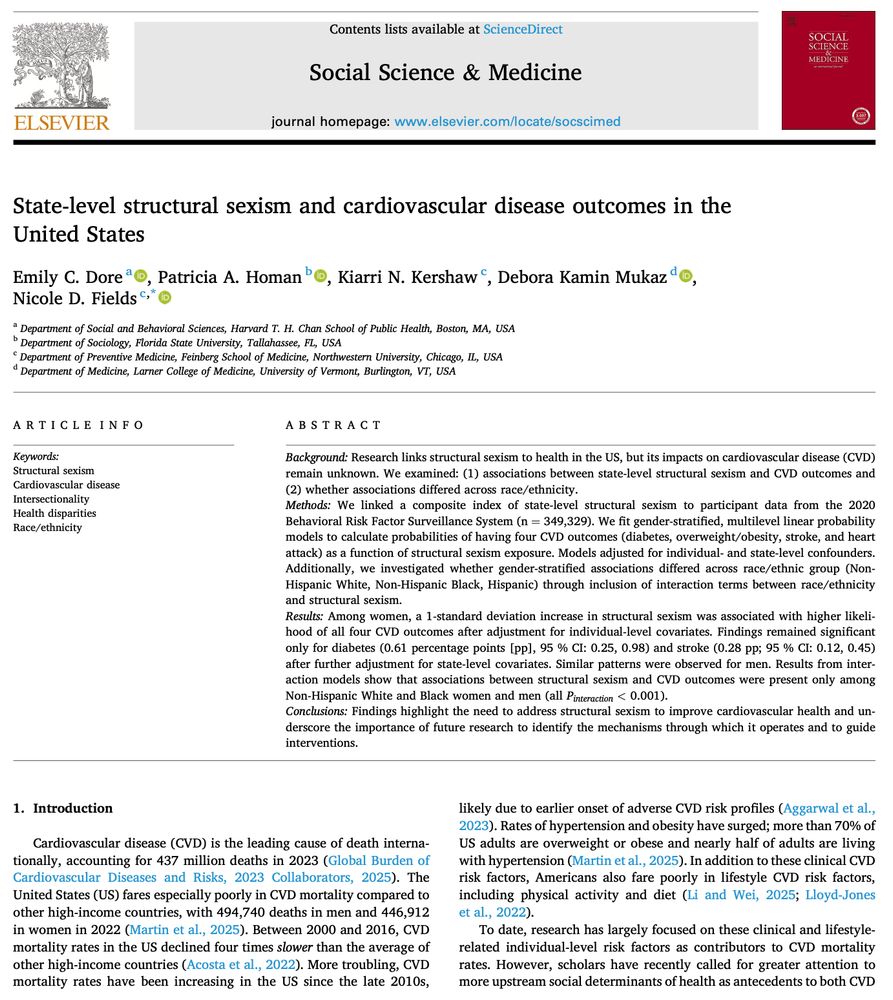
November 7, 2025 at 2:55 PM
Our new study shows that living in states with higher levels of structural sexism was associated with worse cardiovascular disease outcomes for both men and women, especially for diabetes and stroke.
@pahoman.bsky.social @deborascience.bsky.social
www.sciencedirect.com/science/arti...
@pahoman.bsky.social @deborascience.bsky.social
www.sciencedirect.com/science/arti...
Reposted by Eric Hehman
Immigration raids during Trump II have increased daily student absences by 22 percent in the California Central Valley, with largest increases among the youngest students.


November 7, 2025 at 7:24 AM
Immigration raids during Trump II have increased daily student absences by 22 percent in the California Central Valley, with largest increases among the youngest students.
Reposted by Eric Hehman
Reposted by Eric Hehman
My colleague Falk Lieder and I are hiring a new post-doc at UCLA to join the #WiseJudgementConsortium. The ad is here: recruit.apo.ucla.edu/JPF10650

Postdoctoral Scholar
University of California, Los Angeles is hiring. Apply now!
recruit.apo.ucla.edu
October 31, 2025 at 8:30 PM
My colleague Falk Lieder and I are hiring a new post-doc at UCLA to join the #WiseJudgementConsortium. The ad is here: recruit.apo.ucla.edu/JPF10650
Reposted by Eric Hehman
Appreciated the chance to share @arajo-eunkyung.bsky.social and I's work on Streetview Sampling on 🎃! The 📸🚘 costume is only for today, but the methods paper and tools are open access: guilfordjournals.com/doi/pdf/10.1...

October 31, 2025 at 5:27 PM
Appreciated the chance to share @arajo-eunkyung.bsky.social and I's work on Streetview Sampling on 🎃! The 📸🚘 costume is only for today, but the methods paper and tools are open access: guilfordjournals.com/doi/pdf/10.1...
Reposted by Eric Hehman
🎉 @rpsychologist.com 's PowerLMM.js is the online statistics application of the year 2025 🎉
powerlmmjs.rpsychologist.com
- Calculate power (etc) for multilevel models
- Examine effects of dropout and other important parameters
- Fast! (Instant results)
powerlmmjs.rpsychologist.com
- Calculate power (etc) for multilevel models
- Examine effects of dropout and other important parameters
- Fast! (Instant results)
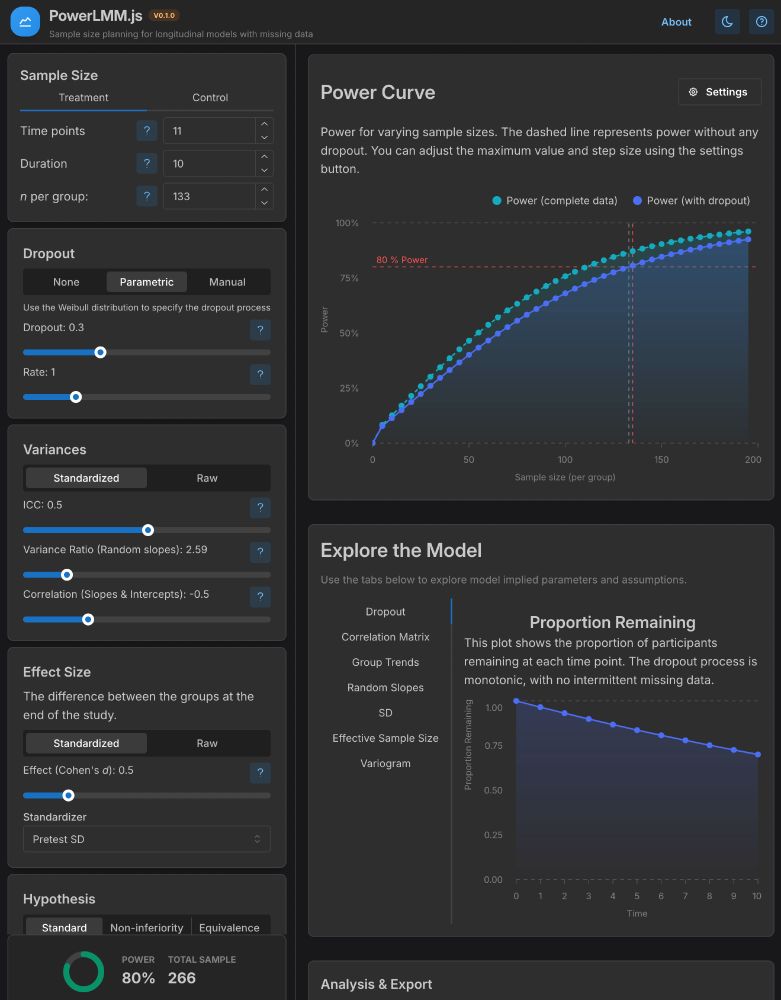
October 28, 2025 at 2:37 PM
🎉 @rpsychologist.com 's PowerLMM.js is the online statistics application of the year 2025 🎉
powerlmmjs.rpsychologist.com
- Calculate power (etc) for multilevel models
- Examine effects of dropout and other important parameters
- Fast! (Instant results)
powerlmmjs.rpsychologist.com
- Calculate power (etc) for multilevel models
- Examine effects of dropout and other important parameters
- Fast! (Instant results)
Deadline approaching! (Nov 1) Please consider submitting your fave 2024 paper for the ISCON best paper award
ISCON now seeking nominations for the 2024 Best Social Cognition Paper Award!
This award recognizes an outstanding article (theoretical or empirical) in the field of social cognition. Papers eligible if published in 2024.
More info here: www.socialcognition.net/best-paper-a...
This award recognizes an outstanding article (theoretical or empirical) in the field of social cognition. Papers eligible if published in 2024.
More info here: www.socialcognition.net/best-paper-a...
Best Paper Award | Home
www.socialcognition.net
October 22, 2025 at 5:53 PM
Deadline approaching! (Nov 1) Please consider submitting your fave 2024 paper for the ISCON best paper award
We have a new tutorial out in Social Cog methods issue, a resampling tool we made in R that basically tells you when some average is "stable" and can be used to guide data collection or test hypotheses related to variance. Quick explanation here
1/n
guilfordjournals.com/doi/10.1521/...
1/n
guilfordjournals.com/doi/10.1521/...

October 21, 2025 at 1:47 PM
We have a new tutorial out in Social Cog methods issue, a resampling tool we made in R that basically tells you when some average is "stable" and can be used to guide data collection or test hypotheses related to variance. Quick explanation here
1/n
guilfordjournals.com/doi/10.1521/...
1/n
guilfordjournals.com/doi/10.1521/...
Reposted by Eric Hehman
#AcademicSky #PrejudiceResearch #PsychSciSky
Our new paper out in American Psychologist.
Led by Meleady, with @debshulman.bsky.social, Kotzur, & Crisp.
Contact "ruptures" (going to university; studying abroad) ==> changes in outgroup attitudes longitudinally
psycnet.apa.org/doiLanding?d...
Our new paper out in American Psychologist.
Led by Meleady, with @debshulman.bsky.social, Kotzur, & Crisp.
Contact "ruptures" (going to university; studying abroad) ==> changes in outgroup attitudes longitudinally
psycnet.apa.org/doiLanding?d...
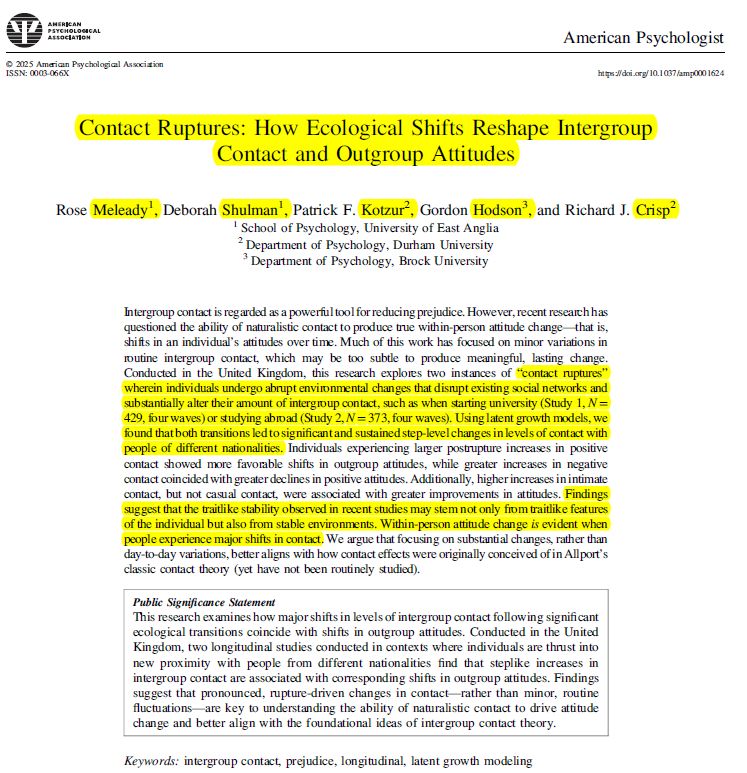
October 17, 2025 at 1:46 PM
#AcademicSky #PrejudiceResearch #PsychSciSky
Our new paper out in American Psychologist.
Led by Meleady, with @debshulman.bsky.social, Kotzur, & Crisp.
Contact "ruptures" (going to university; studying abroad) ==> changes in outgroup attitudes longitudinally
psycnet.apa.org/doiLanding?d...
Our new paper out in American Psychologist.
Led by Meleady, with @debshulman.bsky.social, Kotzur, & Crisp.
Contact "ruptures" (going to university; studying abroad) ==> changes in outgroup attitudes longitudinally
psycnet.apa.org/doiLanding?d...
Reposted by Eric Hehman
In this behemoth effort led by @anhhtran.bsky.social, we reanalysed 11 experience-sampling datasets, and found limited evidence that context (intensity, controllability, and social features) meaningfully shaped everyday emotion regulation strategy use.
Context Matters, Doesn't It? The Role of Context in Everyday Emotion Regulation Strategy Use: https://osf.io/axzk6
October 13, 2025 at 3:45 AM
In this behemoth effort led by @anhhtran.bsky.social, we reanalysed 11 experience-sampling datasets, and found limited evidence that context (intensity, controllability, and social features) meaningfully shaped everyday emotion regulation strategy use.
Reposted by Eric Hehman
There is a robust link between intergroup contact & reduced prejudice, but does contact actually cause a reduction in prejudice?
Across multiple longitudinal data sets (N > 20,000), very few people reported increased contact AND reduced prejudice.
psycnet.apa.org/fulltext/202...
Across multiple longitudinal data sets (N > 20,000), very few people reported increased contact AND reduced prejudice.
psycnet.apa.org/fulltext/202...

October 9, 2025 at 11:55 AM
There is a robust link between intergroup contact & reduced prejudice, but does contact actually cause a reduction in prejudice?
Across multiple longitudinal data sets (N > 20,000), very few people reported increased contact AND reduced prejudice.
psycnet.apa.org/fulltext/202...
Across multiple longitudinal data sets (N > 20,000), very few people reported increased contact AND reduced prejudice.
psycnet.apa.org/fulltext/202...
McGill psych is hosting a panel for under rep minority folks possibly interested in attending grad school on Oct 20.
Register here: events.teams.microsoft.com/event/246051...
Register here: events.teams.microsoft.com/event/246051...

October 7, 2025 at 9:26 PM
McGill psych is hosting a panel for under rep minority folks possibly interested in attending grad school on Oct 20.
Register here: events.teams.microsoft.com/event/246051...
Register here: events.teams.microsoft.com/event/246051...
cool paper extracting spatial distance from Turkish youtube videos, concludes people walk closer to their ingroup (on sidewalks etc), non religious men avoid religious women
www.nature.com/articles/s41...
www.nature.com/articles/s41...

October 4, 2025 at 3:09 PM
cool paper extracting spatial distance from Turkish youtube videos, concludes people walk closer to their ingroup (on sidewalks etc), non religious men avoid religious women
www.nature.com/articles/s41...
www.nature.com/articles/s41...
Paper and R package for (more flexible) power analysis in multilevel: psycnet.apa.org/record/2024-...
APA PsycNet
psycnet.apa.org
October 3, 2025 at 4:02 PM
Paper and R package for (more flexible) power analysis in multilevel: psycnet.apa.org/record/2024-...
Reposted by Eric Hehman
ISCON now seeking nominations for the 2025 Early Career Award! Recognizing a junior scientist who has made outstanding contributions to the understanding of social cognition.
Nominees must have received their PhDs no earlier than 2019.
More info here: www.socialcognition.net/early-career...
Nominees must have received their PhDs no earlier than 2019.
More info here: www.socialcognition.net/early-career...
Early Career Award | Home
www.socialcognition.net
September 26, 2025 at 3:30 PM
ISCON now seeking nominations for the 2025 Early Career Award! Recognizing a junior scientist who has made outstanding contributions to the understanding of social cognition.
Nominees must have received their PhDs no earlier than 2019.
More info here: www.socialcognition.net/early-career...
Nominees must have received their PhDs no earlier than 2019.
More info here: www.socialcognition.net/early-career...
Reposted by Eric Hehman
ISCON now seeking nominations for the 2024 Best Social Cognition Paper Award!
This award recognizes an outstanding article (theoretical or empirical) in the field of social cognition. Papers eligible if published in 2024.
More info here: www.socialcognition.net/best-paper-a...
This award recognizes an outstanding article (theoretical or empirical) in the field of social cognition. Papers eligible if published in 2024.
More info here: www.socialcognition.net/best-paper-a...
Best Paper Award | Home
www.socialcognition.net
September 26, 2025 at 3:28 PM
ISCON now seeking nominations for the 2024 Best Social Cognition Paper Award!
This award recognizes an outstanding article (theoretical or empirical) in the field of social cognition. Papers eligible if published in 2024.
More info here: www.socialcognition.net/best-paper-a...
This award recognizes an outstanding article (theoretical or empirical) in the field of social cognition. Papers eligible if published in 2024.
More info here: www.socialcognition.net/best-paper-a...
Reposted by Eric Hehman
Hostile and benevolent sexism are both on the decline in 1,097 studies, N = 339,740 since 1996.
Note that "3" on these scales is already a neutral response. Even bigger progress in countries with more hostile sexism.
From Matthew D. Hammond
psycnet.apa.org/psycarticles...
#phdsky #psych
Note that "3" on these scales is already a neutral response. Even bigger progress in countries with more hostile sexism.
From Matthew D. Hammond
psycnet.apa.org/psycarticles...
#phdsky #psych
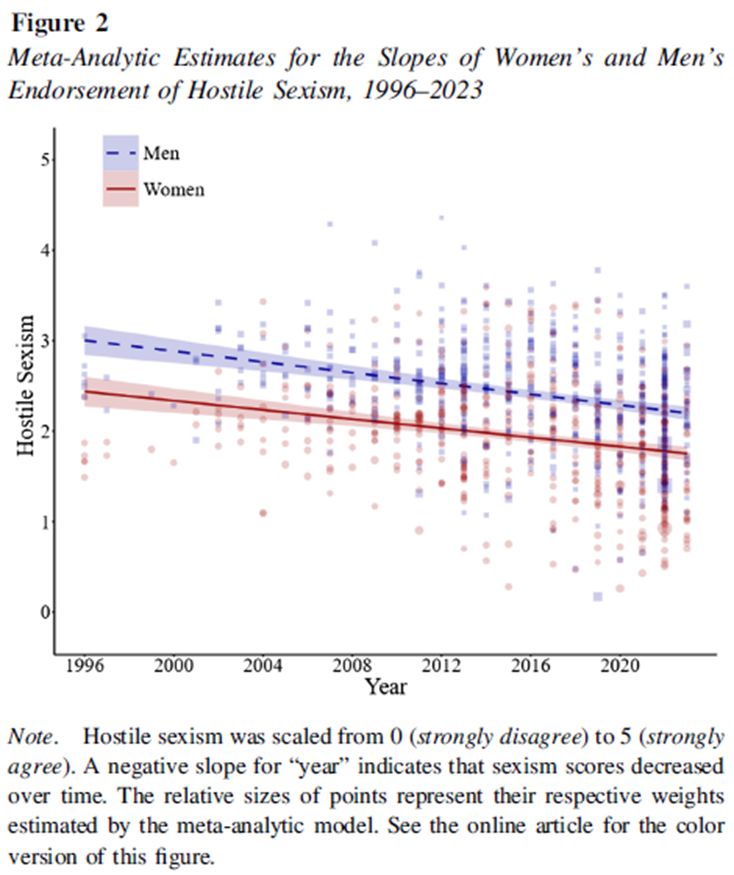

September 25, 2025 at 1:37 PM
Hostile and benevolent sexism are both on the decline in 1,097 studies, N = 339,740 since 1996.
Note that "3" on these scales is already a neutral response. Even bigger progress in countries with more hostile sexism.
From Matthew D. Hammond
psycnet.apa.org/psycarticles...
#phdsky #psych
Note that "3" on these scales is already a neutral response. Even bigger progress in countries with more hostile sexism.
From Matthew D. Hammond
psycnet.apa.org/psycarticles...
#phdsky #psych
Reposted by Eric Hehman
New paper out in Journal of Experimental Social Psychology! 🎉
How do we figure out who will accept or reject us in a new group?
We show that people generalize relational value across friendship ties—forming a network gradient of approach & avoidance.
authors.elsevier.com/a/1lq3x51f8w...
How do we figure out who will accept or reject us in a new group?
We show that people generalize relational value across friendship ties—forming a network gradient of approach & avoidance.
authors.elsevier.com/a/1lq3x51f8w...
September 24, 2025 at 5:28 AM
New paper out in Journal of Experimental Social Psychology! 🎉
How do we figure out who will accept or reject us in a new group?
We show that people generalize relational value across friendship ties—forming a network gradient of approach & avoidance.
authors.elsevier.com/a/1lq3x51f8w...
How do we figure out who will accept or reject us in a new group?
We show that people generalize relational value across friendship ties—forming a network gradient of approach & avoidance.
authors.elsevier.com/a/1lq3x51f8w...
Part of a new CREP paper out (failing to) replicating Griskevicius et al 2010 in JPSP
Using this to plug how I think CREP is a great framework if you teach a Research Methods class, a number of my students ended up as authors, which they found pretty cool 1/3
Using this to plug how I think CREP is a great framework if you teach a Research Methods class, a number of my students ended up as authors, which they found pretty cool 1/3
Collaborative Registered Replication of Griskevicius et al. (2010): Can Pro-environmental Behavior Be Promoted by Priming Status Motivation?
a #CREP project
with 24 student teams, 6 countries, N~4,000
is now out in @collabrapsychology.bsky.social
doi.org/10.1525/coll...
#OpenScience #Metascience
a #CREP project
with 24 student teams, 6 countries, N~4,000
is now out in @collabrapsychology.bsky.social
doi.org/10.1525/coll...
#OpenScience #Metascience
Collaborative Registered Replication of Griskevicius et al. (2010): Can Pro-environmental Behavior Be Promoted by Priming Status Motivation?
The present study presents the results of a collaborative registered replication of Griskevicius et al. (2010, Experiment 1). As part of the Collaborative Replication and Education Project, 24 student...
doi.org
September 19, 2025 at 2:25 PM
Part of a new CREP paper out (failing to) replicating Griskevicius et al 2010 in JPSP
Using this to plug how I think CREP is a great framework if you teach a Research Methods class, a number of my students ended up as authors, which they found pretty cool 1/3
Using this to plug how I think CREP is a great framework if you teach a Research Methods class, a number of my students ended up as authors, which they found pretty cool 1/3
Reposted by Eric Hehman
Do you want to get serious about specifying your random-effect structures? This paper might be for you.. plus lots of good stuff about multilevel and dyadic modeling: doi.org/10.1177/2515...

A Practical Guide to Specifying Random Effects in Longitudinal Dyadic Multilevel Modeling - Kareena S. del Rosario, Tessa V. West, 2025
Analyzing over-time dyadic data can be challenging, particularly when using multilevel models with complex random-effect structures. In this tutorial, we discus...
doi.org
September 17, 2025 at 12:43 PM
Do you want to get serious about specifying your random-effect structures? This paper might be for you.. plus lots of good stuff about multilevel and dyadic modeling: doi.org/10.1177/2515...
Reposted by Eric Hehman
We often hear from reviewers: "what about demand effects?" So we developed a method to eliminate them. Something weird happened during testing: We couldn’t detect demand effects in the first place! (1/8)

September 15, 2025 at 5:19 PM
We often hear from reviewers: "what about demand effects?" So we developed a method to eliminate them. Something weird happened during testing: We couldn’t detect demand effects in the first place! (1/8)
Reposted by Eric Hehman
New in JSI (OA): Reckless speeding or tinted windows? We look at racial disparities in reasons why drivers are stopped, their disparate impacts on community trust, and how police departments exacerbate —or mitigate— their impacts through policy. (1/7)
spssi.onlinelibrary.wiley.com/doi/10.1111/...
spssi.onlinelibrary.wiley.com/doi/10.1111/...
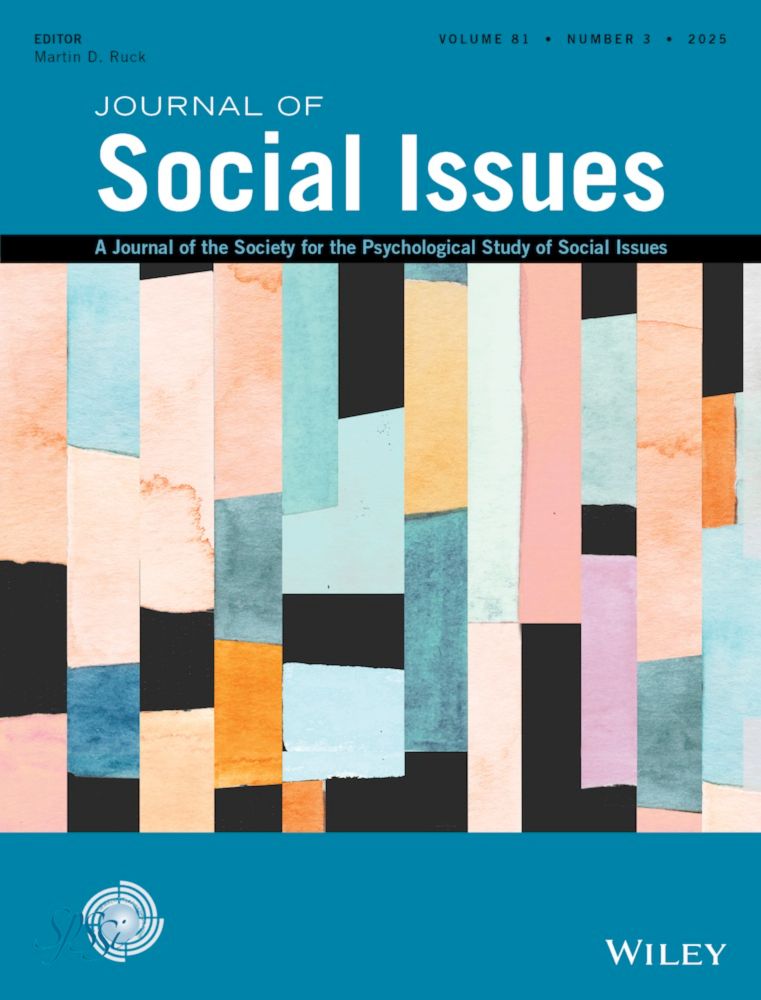
SPSSI Journals
Traffic stops are common and consequential for citizens’ legal socialization and for racial gaps in police-community trust. Efforts to change the tenor of police interactions, however, may discount t...
spssi.onlinelibrary.wiley.com
September 15, 2025 at 5:46 PM
New in JSI (OA): Reckless speeding or tinted windows? We look at racial disparities in reasons why drivers are stopped, their disparate impacts on community trust, and how police departments exacerbate —or mitigate— their impacts through policy. (1/7)
spssi.onlinelibrary.wiley.com/doi/10.1111/...
spssi.onlinelibrary.wiley.com/doi/10.1111/...
Reposted by Eric Hehman
To prevent Ps from pasting (GPT-generated) responses to your text entry Qualtrics question, disable pasting.
Add this code to the OnReady section of your question's javascript:
jQuery("#"+this.questionId+" .InputText").on("cut copy paste",function(e) {
e.preventDefault();
});
Enjoy!
Add this code to the OnReady section of your question's javascript:
jQuery("#"+this.questionId+" .InputText").on("cut copy paste",function(e) {
e.preventDefault();
});
Enjoy!
August 13, 2025 at 3:17 PM
To prevent Ps from pasting (GPT-generated) responses to your text entry Qualtrics question, disable pasting.
Add this code to the OnReady section of your question's javascript:
jQuery("#"+this.questionId+" .InputText").on("cut copy paste",function(e) {
e.preventDefault();
});
Enjoy!
Add this code to the OnReady section of your question's javascript:
jQuery("#"+this.questionId+" .InputText").on("cut copy paste",function(e) {
e.preventDefault();
});
Enjoy!
Reposted by Eric Hehman
In a new paper, my colleagues and I set out to demonstrate how method biases can create spurious findings in relationship science, by using a seemingly meaningless scale (e.g., "My relationship has very good Saturn") to predict relationship outcomes. journals.sagepub.com/doi/10.1177/...

Pseudo Effects: How Method Biases Can Produce Spurious Findings About Close Relationships - Samantha Joel, John K. Sakaluk, James J. Kim, Devinder Khera, Helena Yuchen Qin, Sarah C. E. Stanton, 2025
Research on interpersonal relationships frequently relies on accurate self-reporting across various relationship facets (e.g., conflict, trust, appreciation). Y...
journals.sagepub.com
September 10, 2025 at 6:18 PM
In a new paper, my colleagues and I set out to demonstrate how method biases can create spurious findings in relationship science, by using a seemingly meaningless scale (e.g., "My relationship has very good Saturn") to predict relationship outcomes. journals.sagepub.com/doi/10.1177/...



